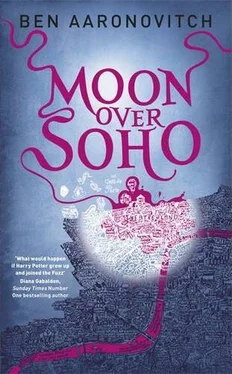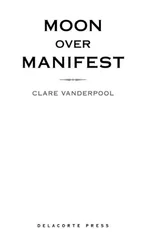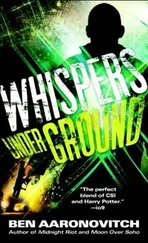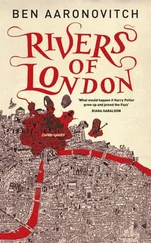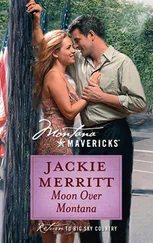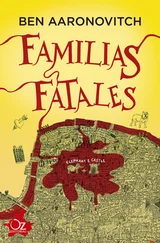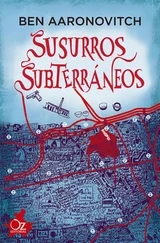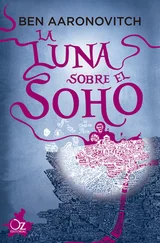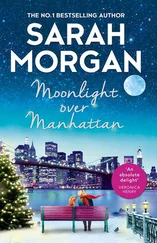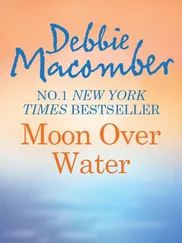“I didn’t want to kill her,” I said. “And I’m still more confident with impello than I am with anything else.”
“You realize she was just a diversion,” said Nightingale. “Alexander Smith was shot in the chest with a couple of narrow-gauge fireballs.”
“I thought it was gunshots,” I said.
“That’s why he used a narrow-gauge fireball to disguise the wound.”
“Forensic countermeasure,” I said. “This guy is way too fucking clever.”
“He probably walked out the back while you were chasing the Pale Lady out the front.”
I cut a target in half with my next fireball.
“That’s much better,” said Nightingale. “They need to go faster. If the enemy can see them coming, you might as well just carry a gun and shoot them with that instead.”
“Why don’t we just carry guns?” I asked. “I know you’ve got a roomful of them.”
“Well, for one thing,” said Nightingale, “the paperwork has become very tiresome, then there’s care, maintenance, and trying to ensure one doesn’t leave it on the Underground by mistake. Plus a fireball is more versatile and can pack more of a punch than any caliber pistol I’d be happy to carry.”
“Really?” I asked. “More than a .44 magnum?”
“Indubitably,” he said.
“What’s the biggest thing you’ve zapped with a fireball?” I asked.
“That would be a tiger,” said Nightingale.
“Well, don’t tell Greenpeace,” I said. “They’re an endangered species.”
“Not that sort of tiger,” said Nightingale. “A Panzerkampfwagen sechs Ausf E .”
I stared at him. “You knocked out a Tiger tank with a fireball?”
“Actually I knocked out two,” said Nightingale. “I have to admit that the first one took three shots — one to disable the tracks, one through the driver’s eye slot, and one down the commander’s hatch — brewed up rather nicely.”
“And the second Tiger?”
“I didn’t have time to be so clever with that one,” said Nightingale. “Straight frontal shot into the weak spot where the turret meets the hull. Must have caught the ammo store because it brewed up like a firework factory. The turret blew right off.”
“This was at Ettersberg, wasn’t it?”
“This was the final act at Ettersberg,” he said. “We were trying to pull out when this platoon of Tigers just came crawling out of the tree line. We didn’t expect the Germans to have anything but rear-echelon troops, so it caught us on the hop, I can tell you. I was the rear guard, so I had to deal with them.”
“Lucky you,” I said. But my brain was still trying to get around the idea that Nightingale could put a hole in four inches of steel armor when I still sometimes had trouble getting through the paper of the targets.
“Practice and training,” said Nightingale. “Not luck.”
We kept it up until lunch and after that there was exciting paperwork including a surprisingly long form in which I explained how I’d managed to lose an expensive X26 taser pistol and reduce the working insides of an airwave handset to sand. Coming up with a plausible explanation for both kept me busy until late afternoon when Simone phoned.
“I’ve found us a hotel room,” she said and gave me an address off Argyle Square.
“When shall we meet?” I asked.
“I’m already there,” she said. “Naked and decorated with whipped cream.”
“Really?”
“Actually,” she said, “I’ve eaten the whipped cream, but it’s the thought that counts.”
Argyle Square is about a fifteen-minute walk from the Folly. Twenty if you stop off at the mini market to pick up a couple of cans of aerosol whipped cream — it always pays to be prepared.
It was only a two-star hotel but the sheets were clean, the bed was sturdy, and it had a tiny en suite toilet and shower. The walls were a bit thin but we only found that out when next door banged on the wall for us to be quiet. We did our best that one last time — which, and I’m guessing here, lasted a couple of hours and resulted in both of us walking funny the next morning.
Then we got to stay in our sturdy yet comfortable bed and fall asleep to the London lullaby of police sirens, shunting trains, and catfights.
“Peter,” she said. “You haven’t changed your mind about tomorrow, have you?”
“What about tomorrow?”
“Your dad’s gig,” she said. “You said I could come, you promised.”
“You can meet me there,” I said.
“Good,” she said and fell asleep in my arms.
THE IMPORTANT thing about Camden Market is that nobody planned it. Before London swallowed it whole, Camden Town was the fork in the road best known for a coaching inn called the Mother Red Cap. It served as a last-chance stop for beer, highway robbery, and gonorrhea before heading north into the wilds of Middlesex. In the early nineteenth century men in frock coats and serious muttonchop sideburns built the eastward branch of Regents Canal just to the north of the coaching inn. I say they built it, but the actual work was done by a couple of thousand strapping Irish fellers who came to be known, because of their canal work, as inland navigators or navvies. They and the navvies who came after them would go on to the build the three main phases of infrastructure development that characterize the history of the industrial revolution: the canals, the railways, and the motorways. I know this because I built a model of the area in junior school and got a gold star, a commendation, and the enduring hatred of Barry Sedgeworth, playground bully and poor loser. A couple of serious canal locks were built next to the Chalk Farm Road, from whence the market gets its name — Camden Lock. There were extensive warehouses along the canal and a large timber merchant.
In the 1960s the planning department of the London County Council, whose unofficial motto was Finishing What the Luftwaffe Started, decided that what London really needed was a series of orbital motorways driven through its heart. The planning blight caused by these schemes meant that what should have been lucrative land to be developed into multistory car parks or municipal rabbit hutches was instead leased to a trio of London wide-boys dressed in Afghan coats. These likely lads set up craft workshops in the old timber yard and on the weekends held a market where the products could be sold. By the mid-1980s the market had spread up Chalk Farm Road and down to the Electric Ballroom, and Camden Council finally stopped trying to put it out of business. It’s currently the second most visited tourist attraction in London and home to the Arches Jazz Club where my dad was going to make his comeback gig with the irregulars.
The irregulars were surprisingly nervous but my dad was remarkably unfazed.
“I’ve played bigger gigs,” he said. “I once played with Joe Harriott in a basement in Catford. After having to go on with him I never got stage fright again.”
The Arches Jazz Club had, in the early days of Camden Lock, been a disreputable dive located in a former lockup under a brick railway arch — hence the name. As the market prospered, the club had moved to one of the units in the west yard just short of the horse bridge, so that while waiting for a gig a punter could sit outside at a café table and have a drink while enjoying the view across the lock basin. These days, my dad assured me, you almost never found dead dogs floating in the canal.
Lord Grant and the Irregulars were due to go on first in support of the main act. On the stage Daniel and Max were setting up the instruments and doing sound checks. There weren’t that many punters in yet. They were mostly outside having a crafty fag or sneaking a drink. I asked where James was.
“Throwing up in the toilet,” said Daniel. “He’s that nervous.”
Читать дальше
